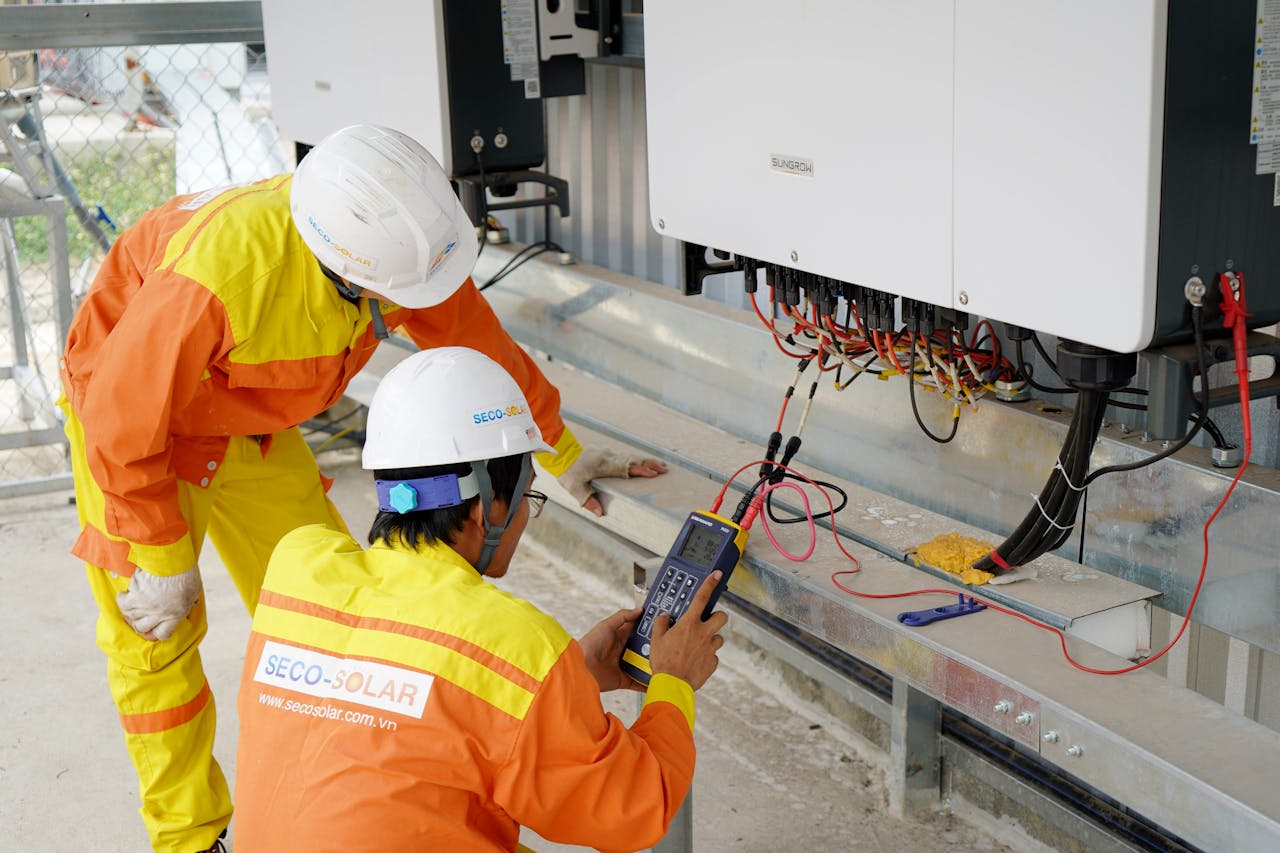Distributed Control System (DCS) Training Course

| Date | Format | Duration | Fees (USD) | Register |
|---|---|---|---|---|
| 12 Jan - 16 Jan, 2026 | Live Online | 5 Days | $3785 | Register → |
| 30 Mar - 17 Apr, 2026 | Live Online | 15 Days | $11515 | Register → |
| 12 Apr - 14 Apr, 2026 | Live Online | 3 Days | $2625 | Register → |
| 29 Jun - 03 Jul, 2026 | Live Online | 5 Days | $3785 | Register → |
| 13 Jul - 21 Jul, 2026 | Live Online | 7 Days | $5075 | Register → |
| 07 Sep - 18 Sep, 2026 | Live Online | 10 Days | $7735 | Register → |
| 04 Oct - 12 Oct, 2026 | Live Online | 7 Days | $5075 | Register → |
| 06 Dec - 10 Dec, 2026 | Live Online | 5 Days | $3785 | Register → |
| Date | Venue | Duration | Fees (USD) | Register |
|---|---|---|---|---|
| 05 Jan - 09 Jan, 2026 | Addis Ababa | 5 Days | $5775 | Register → |
| 22 Feb - 05 Mar, 2026 | Muscat | 10 Days | $11085 | Register → |
| 25 May - 12 Jun, 2026 | Almaty | 15 Days | $12525 | Register → |
| 15 Jun - 19 Jun, 2026 | London | 5 Days | $6305 | Register → |
| 13 Jul - 15 Jul, 2026 | Dubai | 3 Days | $4680 | Register → |
| 31 Aug - 04 Sep, 2026 | Houston | 5 Days | $6835 | Register → |
| 12 Oct - 23 Oct, 2026 | Dubai | 10 Days | $11085 | Register → |
| 16 Nov - 20 Nov, 2026 | Budapest | 5 Days | $6305 | Register → |
Did you know that modern Distributed Control Systems (DCS) can integrate up to 100,000 input/output points across multiple facilities, enabling centralised monitoring and control of complex industrial processes while maintaining local autonomy at the controller level?
Course Overview
The Distributed Control System (DCS) Training Course by Alpha Learning Centre is meticulously designed to equip professionals with essential skills in industrial automation and distributed control system fundamentals. This course focuses on DCS architecture, real-time process control, and system configuration to ensure participants can effectively implement, operate, and maintain sophisticated control systems in modern industrial environments.
Why Select This Training Course?
Selecting this Distributed Control System Course offers numerous advantages for professionals involved in process control and automation. Participants will gain advanced knowledge of supervisory control, operator interface design, and control loops and tuning. The course provides hands-on experience with industry-standard DCS platforms and real-world control scenarios, enabling attendees to optimise their advanced process automation strategies effectively.
For organisations, investing in this training enhances overall operational efficiency and ensures better system reliability. Research indicates that implementing comprehensive DCS frameworks results in enhanced ability to monitor and control distributed equipment. According to industry experts, a DCS provides a centralised supervisory control system that coordinates multiple controllers distributed throughout a manufacturing facility or process, offering significant advantages in terms of scalability, reliability, and integration capabilities.
For individuals who complete this course, will benefit from enhanced career prospects as they become more valuable assets in their respective fields. Studies indicate that professionals with DCS expertise can significantly improve their career trajectory as the field requires understanding of both redundancy and fail-safe operations and alarm management, while skills in data acquisition and processing and integration with SCADA and PLCs are essential for effective industrial control systems.
Transform your control system capabilities – Register now for this critical advanced training programme!
Who Should Attend?
This Distributed Control System (DCS) Training Course is suitable for:
- Process Control Engineers in manufacturing
- Automation Engineers working with DCS
- Instrumentation Technicians in control systems
- System Integrators specializing in DCS
- Operations Managers in control room environments
What are the Training Goals?
The purpose of this course is to:
- Master DCS configuration and programming
- Enhance system integration capabilities
- Improve troubleshooting and maintenance skills
- Understand advanced control strategies
- Ensure compliance with safety and standards
How will this Training Course be Presented?
The Distributed Control System (DCS) Training Course delivers comprehensive, hands-on training through proven methodologies designed to maximise learning outcomes and practical skill development. Our expert instructors employ the following methods:
- Hands-on DCS operation exercises
- Simulation of complex control scenarios
- Expert-led discussions on DCS architecture
- Interactive sessions on system troubleshooting
Each delivery method is carefully integrated to ensure participants gain both theoretical knowledge and practical experience. The course structure promotes active engagement and real-world application, allowing participants to develop crucial analytical and strategic skills within a supportive learning environment.
Join us to experience this dynamic and effective learning approach – Register now to secure your place!
Course Syllabus
Module 1: DCS Architecture
- Understanding DCS system components
- Network topology in DCS
- Redundancy and fault tolerance
- Integration with field devices
- Scalability of DCS systems
Module 2: Configuration and Programming
- Configuration tools for DCS
- Programming logic and function blocks
- Developing control strategies
- Customizing HMI for operator interface
- Managing I/O configurations
- Scripting for complex control
- Database management in DCS
Module 3: Process Control Techniques
- PID loop tuning and optimization
- Advanced regulatory control
- Cascade, ratio, and feedforward control
- Implementing batch control
- Managing alarms effectively
Module 4: System Integration
- DCS integration with SCADA and PLCs
- Data exchange between systems
- Interfacing with MES and ERP systems
- Communication protocols for integration
- Handling inter-system dependencies
Module 5: Safety and Security in DCS
- Implementing safety instrumented systems
- Cybersecurity measures for DCS
- Safety integrity levels (SIL)
- Secure configuration practices
- Backup and recovery strategies
Module 6: Maintenance and Troubleshooting
- Routine maintenance of DCS components
- Diagnostic tools for system health
- Troubleshooting communication issues
- Managing hardware failures
Module 7: Performance Monitoring
- Real-time performance metrics
- Historical data analysis for optimization
- Identifying bottlenecks in control processes
- Enhancing system efficiency
Module 8: Operator Training and HMI Design
- Designing effective human-machine interfaces
- Training operators for DCS interaction
- Ergonomics in control room design
- User experience in HMI
Module 9: DCS Project Management
- Project lifecycle with DCS implementation
- Managing scope, time, and cost in DCS projects
- Documentation for DCS projects
Module 10: Alarm Management
- Alarm philosophy and rationalization
- Reducing alarm floods
- Configuring alarm priorities
- Auditing alarm performance
Module 11: Advanced Control Applications
- Model Predictive Control (MPC) in DCS
- Multivariable control strategies
- Optimisation algorithms in DCS
Module 12: Data Historian and Analytics
- Data collection and storage in DCS
- Utilizing data for process analytics
- Predictive maintenance through data analysis
- Reporting and visualization tools
Module 13: System Lifecycle Management
- Upgrading DCS systems
- Migration strategies for legacy systems
- Life cycle cost management
- Vendor support and system updates
Training Impact
The impact of distributed control system training is evident through various real-world case studies and data, which demonstrate the effectiveness of structured programmes in enhancing operational efficiency and system reliability.
Research indicates that professionals with strong DCS skills can significantly improve operational outcomes. According to industry experts, modern DCS platforms offer unprecedented levels of integration, enabling network communication in DCS across various systems while maintaining robust cybersecurity in control systems. These systems provide a unified architecture for process automation, helping organisations achieve operational excellence through improved reliability, reduced costs, and enhanced production.
These case studies highlight the tangible benefits of implementing advanced DCS techniques:
- Improved field instrumentation integration and management
- Enhanced troubleshooting and diagnostics capabilities
- Increased efficiency through process optimization using DCS
- Strengthened remote monitoring and control capabilities
By investing in this advanced training, organisations can expect to see:
- Significant improvement in control system performance
- Improved ability to handle complex automation challenges
- Enhanced decision-making capabilities in process control
- Increased competitiveness through comprehensive industry applications of DCS in manufacturing, power plants, and refineries
Transform your career and organisational performance – Enrol now to master Distributed Control Systems!
FAQs
4 simple ways to register with Alpha Learning Centre (ALC):
Website:
Log on to our website www.alphalearningcentre.com. Select the course you want from the list of categories or filter through the calendar options. Click the “Register” button in the filtered results or the “Manual Registration” option on the course page. Complete the form and click submit. Telephone:
Call +971 58 102 8628 or +44 7443 559 344 to register. E-mail Us:
Send your details to [email protected]. Mobile/WhatsApp:
You can call or message us on WhatsApp at +971 58 102 8628. Believe us; we are quick to respond to.
Yes, besides English, we do deliver courses in 17 different languages which includes Arabic, French, Portuguese, Spanish—to name a few.
Our course consultants on most subjects can cover about 3 to maximum 4 modules in a classroom training format. In a live online training format, we can only cover 2 to maximum 3 modules in a day.
Our public courses generally start around 9:30am and end by 4:30pm. There are 7 contact hours per day.
Our live online courses start around 9:30am and finish by 12:30pm. There are 3 contact hours per day. The course coordinator will confirm the Timezone during course confirmation.
A valid ALC ‘Certificate of Training’ will be awarded to each participant upon successfully completing the course. Accredited certificates from HRCI, PMI, CPD, IIBA are also available upon request and additional fees.








